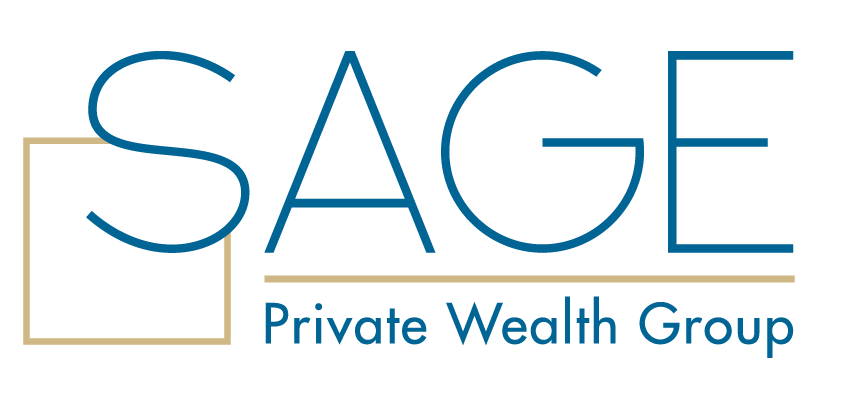By SAGE Private Wealth Group

How do you relieve stress? Is it the combination of a cozy sweater, devouring a good book and sipping a hot tea? What about taking a long walk outside, soaking up the sun? Or is it through meditation and breathing exercises? Everyone has their own way of relieving anxiety and putting themselves in the right headspace to get back on track. While chamomile tea and meditation are certainly useful tools, the greatest asset in combating stress for most Americans would be focusing on their financial health.
The American Psychological Association has been producing the ‘Stress in America’ study dating back to 2007. In an interview with the American Psychological Association, Linda Gallo, professor of psychology at San Diego State University and co-director of the Institute for Behavioral and Community Health Studies, states that the effect of our personal financial stress can lead to “physical health problems like headaches and also mental health issues, such as anxiety, [and] trouble sleeping.” When we talk about promoting mental health, it’s important we start considering how much financial health plays a part in that.
Wellness is a daily commitment that requires us to make conscious choices to keep our mind, body, and soul sharp. My SAGE Private Wealth Group colleague wrote at length in a previous article how firms like ours champion and promote wellness in the office, and what employees can do to live a balanced life. The same idea applies to how we approach our financial health.
Our Managing Partner & CEO Khaled Taha often talks about the importance of understanding people’s relationship with money. “The path to creating a secure financial future boils down to understanding two key components. The first is the physics of money and the second is an individuals’ relationship with money. While the physics of money is math – it’s immutable, the variable that you can control is your relationship with money.” Taking control of your financial destiny begins with removing emotions out of your decision making.
For a number of people, personal finance conjures up different emotions: from euphoric highs when we get a pay raise or our investments perform well all the way to the other end of the spectrum of feeling a lack of control due to global economic instability or unexpected life events, to name a few. To achieve financial health, focus on keeping your economic stability in equilibrium with your emotional wellbeing. It’s not that a financially healthy individual doesn’t run into personal finance problems or stress, but they have the means and the disposition to face the challenge in a productive way.
Financial health puts you in a frame of mind to take control of your financial destiny.
How Do We Define Economic Stability?
I define it as the ability to allocate the resources available to you towards your ideal vision of the future – economic stability doesn’t need to be a six-figure income or seven-figure net worth. Your mental time horizon is how far ahead you can visualize your goals. In a study done by Morningstar ‘When More Is Less: Rethinking Financial Health’, the findings were that “the further ahead a person thinks in time and the clearer their picture of the future, the better their behavior in terms of cash, credit, and savings management.”
Your mental time horizon and the clarity in articulating your goals is what determines economic stability.
Let’s use an example:
Ava is 28 years old and has progressed well in her career to a point where she’s making $70,000/yr. She currently has $15,000 in student loan debt and is renting an apartment. Ava could be thinking of her goals in two ways:
- I’d like to have paid off my student loans and one day be a homeowner.
- I want to make uniform and routine payments over 36 months to pay off my student debt and have saved enough for a 20% down payment on a $400,000 condo in the Chicago neighborhood of Lincoln Park in ten years.
Ava’s two goals are to have paid off her student loans and to one day own a home. The habit of goal setting, or “beginning with the end in mind” famously said by Dr. Stephen Covey, clearly delineates what it is we’re trying to achieve and how we plan to achieve it. Economic stability comes from knowing Ava’s vision of the future in the clearest terms possible, so that she and her Wealth Advisor can allocate the resources available to bring her vision to life. Visualizing what she wants to achieve, the idea of starting with the end in mind will reinforce the behaviors necessary to take control of her financial destiny.
How does our behavior impact the decisions we make when it comes to money? It is natural and common to let our emotions get the best of us at times, we are human after all. The progression of becoming a financially healthy individual is to not let our emotions dictate how we allocate resources towards their intended goal. Does market volatility cause you to move everything into cash or chase sky high returns, despite this course of action being against your risk tolerance? Does seeing your credit card statement cause unbearable anxiety, to the point where you are avoiding the balance all together? Our emotions are powerful things and can dictate the actions we take, sometimes against our own best wishes. Taking control of your financial destiny requires you to stay calm.
Taking control of your financial destiny requires you to stay calm in volatile times, so you can make pragmatic strategic decisions with guidance from your Wealth Advisor.
Back to our example with Ava:
Ava wants to pay off her student loans in three years, making equal payments over 36 months and is investing to have $80,000 ten years from now to purchase a condo in Chicago. There’s been a lot of volatility in the markets lately impacting Ava’s investment portfolio. She can approach this goal through one of two ways:
- All this volatility in the market is making me anxious. Should I liquidate my portfolio? Am I cut out for being an investor?
- I recognize that my goal has a long-time horizon, I have an adequate emergency fund, and I’ve taken a dollar cost averaging approach to my goals. I am comfortable with the present volatility and my risk profile.
The uneasiness of the market conjures up a feeling of doubt for Ava, to the point where she considers abandoning her long-term strategy all together as highlighted in the first approach. However, the second approach shows a maturity and pragmatism in Ava’s decision making. Working with her Wealth Advisor and adhering to sage advice provided…. where part of the role of an advisor is to help Ava remove emotions from her decision making. Her Wealth Advisor has coached her to take a disciplined, unemotional, and repeatable process when it comes to how she manages her money. Together they’ve implemented a strategy that dictates the frequency of when she invests in a portfolio that is aligned with her risk tolerance. They’ve also established an emergency fund that affords her the ability to invest for the long-term. A disciplined financial plan can put our emotions at rest in times of uncertainty.
Stress can be a powerful tool, when managed correctly. Stress is what allows us to grow and develop new muscles or skills. If we approach our finances in the same way, we can grow to lead more fulfilling and happier lives without the unnecessary stress. Next time you’re faced with a difficult money decision, use it as an opportunity to strengthen your financial health. Leading a financially healthy life gives you the tools to put the power back in your hands and ultimately live a more confident life with more peace of mind.
Sources https://www.apa.org/research/action/speaking-of-psychology/financial-stress https://sageadvicegroup.com/2021/03/26/wellness-essential-or-cliche/ http://mscomm.morningstar.com/moreless/?adid=SOC_ADV_WP_RR https://www.franklincovey.com/habit-2/





